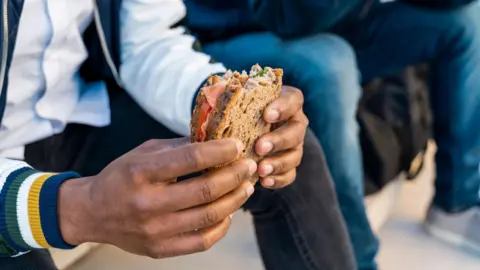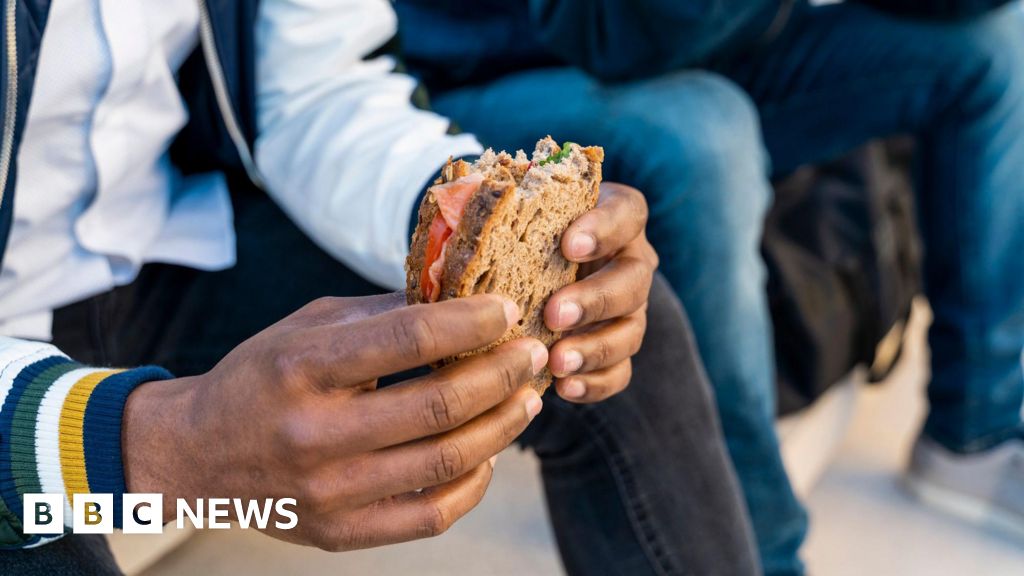By Lora Jones, Business reporter, BBC News
 Getty Images
Getty ImagesLawyers acting on behalf of two people who fell ill in an E. coli outbreak in the UK have started legal action against two leading supermarkets.
Law firm Fieldfisher said on Friday it had issued letters of claim for breach of the Consumer Protection Act over own-brand sandwiches purchased in Tesco and Asda.
The claims for compensation relate to a man from the South East and an 11-year-old girl in the North West.
One person in England has died linked to the ongoing E. coli outbreak, the UK Health Security Agency said on Thursday, although they had underlying health conditions.
The E. coli outbreak is thought to be caused by some supermarket sandwiches containing salad leaves.
The large majority of cases reported so far developed symptoms before 4 June and the number of cases being reported is now falling, offering hope the outbreak may have ended.
Several food manufacturers recalled some of their products as a precaution.
The Food Standards Agency said lettuce is the likely source, based on tests.
Fieldfisher said the claim against Asda related to a young girl who contracted E. coli after eating an own-brand chicken salad sandwich from the supermarket.
“The girl, aged 11, developed the serious condition haemolytic uraemic syndrome (HUS), which attacks the kidneys and has been on dialysis for three weeks,” it said.
“She was discharged home two days ago but could be at risk of permanent kidney damage. Her mother bought three of the sandwiches as part of an online delivery.”
An Asda spokesman said that it had not yet received any letter from Fieldfisher regarding these claims, but added: “As soon as we do we will review the details of the claim as a matter of urgency.”
Harvinder Kaur, a director at Fieldfisher, told the PA News agency earlier on Friday that she had issued a separate letter to Tesco on behalf of a man from the South East.
He was also hospitalised with E. coli symptoms after eating Tesco-branded sandwiches containing salad, the law firm claims.
“Luckily, this client did not go on to develop HUS and is now home, but for a time he was seriously ill,” she said.
“Under the Act, companies producing food must ensure it is safe to eat.
“If it causes illness, it is a breach of their duty and those injured are eligible to claim compensation, not least to fund possible ongoing medical care.”
She added that the man was a “regular shopper” at Tesco, buying his lunch there most weekdays as it was very close to his work.
The BBC understands Tesco has yet to receive the letter from Fieldfisher.
How do you treat E. coli and what are the symptoms?
E. coli are a diverse group of bacteria that normally live in human and animal intestines.
Some types are harmless but others can make people seriously ill.
Tests have shown that the type in this outbreak is called E.coli STEC O145.
It produces a Shiga toxin – which can attack the lining of the gut.
Symptoms can include diarrhoea that can be bloody, stomach cramps, fever and vomiting.
It usually takes a few days from being infected for symptoms to show.
Most people recover well, but some – such as young children or people with underlying health conditions – can become very unwell.
There is no specific treatment for E. coli infections. People who are infected can usually be cared for at home and most will get better without medical treatment.
It is important to drink plenty of fluids, as diarrhoea can lead to dehydration.
A small number may go on to develop a serious complications including HUS.
People should seek medical help if worried – and there are things people can do to reduce the risk of infection.
These include regularly wash your hands with warm water and soap – alcohol gels do not kill all bugs that cause diarrhoeal illness – and washing fruit and vegetables.
It is also suggested to cook food to the temperatures on any packaging.

